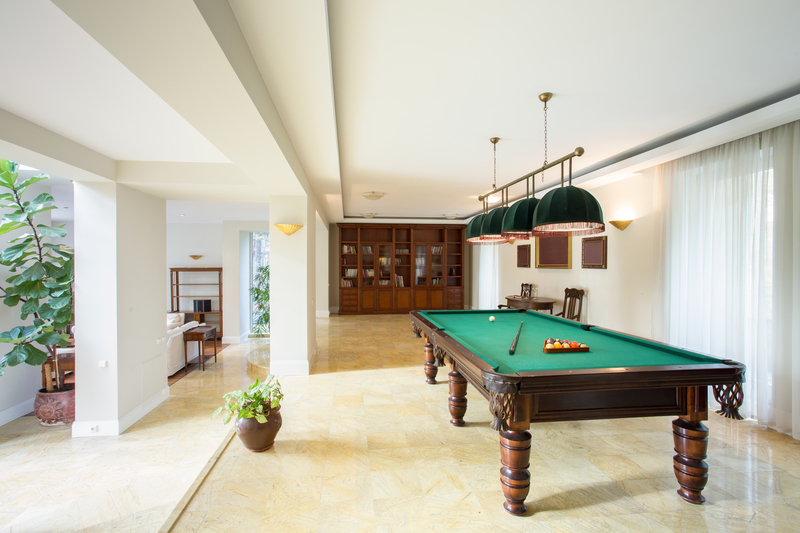Decluttering Decisions: What to Keep and What to Toss
Do you ever feel overwhelmed by the stuff piling up in your living space? If you're dreaming of a fresher, cleaner, and calmer environment, making decluttering decisions is your essential first step. But knowing what to keep and what to toss isn't always easy. In this comprehensive guide, we'll walk you through practical strategies to confidently declutter and create the spacious, welcoming home you've always wanted.
Why Clutter Accumulates: Understanding the Roots
Before diving into the nuts and bolts of decluttering: it's helpful to understand why clutter builds up in the first place. Recognizing these causes can help you stay motivated and prevent future build-up.
- Sentimental attachment: We often keep items for emotional reasons, associating them with cherished memories or loved ones.
- "Just in case" mentality: Holding on to things out of fear we might "need it someday."
- Decision fatigue: Constantly deferring choices about whether to keep or toss, letting clutter accumulate.
- Lack of organization: Without effective storage, even necessary items become cluttered.

Benefits of Decluttering: More Than Just a Tidy Home
Taking control of your space by using decluttering techniques pays off in multiple ways, including:
- Mental clarity: A neat space can reduce stress and improve your focus.
- Time savings: Less time spent searching for items or cleaning around clutter.
- Increased productivity: An organized environment helps you get more done.
- Financial gain: Selling or donating unused items benefits your wallet and community.
- Improved aesthetics: A decluttered home simply looks and feels better.
Decluttering Decisions: Getting Started
Making smart choices about what to keep and what to toss requires a structured approach. Here's how to jump in with confidence:
1. Set Clear Goals
Before you start sorting, define your desired outcome. This might mean clearing a closet for additional storage, creating a more relaxing living room, or simply refreshing your space for a new season. Having a purpose in mind keeps you focused and motivated.
2. Gather Supplies
- Boxes or bins: For sorting keep, donate, sell, recycle, and trash.
- Markers or labels: To clearly identify each container.
- Cleaning supplies: Take the opportunity to clean surfaces as you clear them.
3. Start Small
Instead of overwhelming yourself, begin with a manageable area, like a single drawer, countertop, or closet. Success in small spaces fuels momentum for tackling bigger projects.
Key Questions to Ask: The Art of Decluttering Decisions
When sorting items, use the following questions to guide your choices. The goal is to make mindful, informed decisions about what should stay in your home and what should go elsewhere.
Does It Serve a Purpose?
Ask yourself if the item is regularly used or fulfills a practical need. If it hasn't been used in the last year, it's likely you can live without it.
Do I Love It?
Surround yourself with objects that spark joy, as Marie Kondo famously recommends. If it doesn't bring you happiness or positive memories, it might be time to let go.
Is It a Duplicate?
How many spatulas, pens, or black T-shirts do you really use? If you own more than you need, keep the best and let go of the rest.
Is It Broken or Outdated?
Be honest--if it's beyond repair and you haven't fixed it by now, you probably won't. Outdated electronics, expired products, and worn-out items can all be purged.
Does This Item Fit My Current Lifestyle?
Our needs change. Let go of things that no longer suit your routines or living situation--such as children's toys long outgrown or sporting equipment you haven't touched in years.
Room-by-Room Decluttering Guide
Different rooms have different clutter challenges. Here's a room-by-room breakdown to help you make the best decluttering decisions for every part of your home.
Living Room
- Magazines and newspapers: Recycle old issues, keep only current ones you're reading.
- Decor: Limit decorative items to a select few that add value or beauty.
- Electronics: Remove outdated or unused gadgets, chargers, and remotes.
Kitchen
- Pans and utensils: Keep only what you use regularly.
- Expired food: Dispose of anything past its use-by date.
- Duplicates: Donate surplus dishware and appliances.
Bedroom
- Clothing: Donate or recycle items you haven't worn in over a year.
- Under-bed storage: Only store items you need seasonally (like winter blankets).
- Nightstands: Clear clutter, keep only essentials.
Bathroom
- Medications: Safely dispose of expired prescriptions.
- Personal care: Toss products that are empty, expired, or unused.
- Towels: Keep a reasonable number per person, donate extras.
Home Office
- Papers: Scan or file important documents, shred what's no longer needed.
- Office supplies: Organize pens, cables, and stationery, toss broken items.
- Books: Keep favorites and references, donate or sell the rest.
Making the Tough Calls: Sentimental and Valuable Items
The hardest part of decluttering is often dealing with items that have sentimental or monetary value.
Sentimental Objects
- Photographs and memorabilia: Digitize photos and keep only the most precious mementos.
- Heirlooms: Display a select few, store or pass on others to family members.
- Gifts: Remember, a gift's purpose is to bring joy. If it's no longer doing so, it's okay to let it go.
Valuable Items
- Appraise: If unsure of something's worth, consider having it professionally valued before letting it go.
- Sell: Online marketplaces or local consignment shops are great options for valuable goods.
- Donate: Even expensive items can benefit someone else if you no longer need or use them.
Where to Take What You Toss
Disposing of unwanted items responsibly is as important as deciding what to toss. Consider these options:
- Recycle: Check local recycling guidelines for electronics, paper, plastics, and more.
- Donate: Clothes, household goods, and books can help local charities and shelters.
- Sell: Use online platforms, garage sales, or consignment shops.
- Trash: Only as a last resort for items that are broken or unusable.
Maintaining a Clutter-Free Lifestyle
You've made tough decluttering decisions. Now, ensure your efforts last! Use these ongoing strategies:
- One-in, one-out rule: For each new item you bring home, let one go.
- Annual or seasonal reviews: Set reminders to revisit high-traffic areas at least once per year.
- Buy mindfully: Ask if you truly need or love an item before purchasing.
- Organizational systems: Invest in shelving, storage bins, and organizers to maintain order.
Psychological Barriers and How to Overcome Them
If you're struggling with decluttering choices, you're not alone. Here's how to move past common mental blockages:
- "It was expensive!" Remind yourself that the money is already spent, and keeping an unused item won't bring it back.
- Guilt over gifts: Your space should reflect your needs, not just the intentions of others.
- Fear of waste: By donating or recycling, you're giving items a second life instead of letting them stagnate.
Decluttering Decision Pro Tips
- Enlist help: A trusted friend or professional organizer offers objectivity and encouragement.
- Set time limits: Use a timer to work in focused bursts, maximizing productivity.
- Visualize your results: Keep inspiration photos of organized spaces nearby to stay motivated.
- Celebrate milestones: Acknowledge your progress after each area is decluttered.

Frequently Asked Questions
How often should I declutter?
Ideally, do a quick assessment every few months, with a deeper cleanout once or twice per year.
What if my family isn't on board?
Start with your own belongings--the results often inspire others. Communicate the benefits and encourage family members to participate at their own pace.
How do I decide what to keep as a minimalist?
Prioritize items that serve a real function or bring unique joy. Minimalism isn't about deprivation, but intentionality.
Can I declutter with children?
Yes! Make it fun by involving them in decisions about their toys and clothes. Teach them the value of sharing with others.
Final Thoughts: Begin Your Decluttering Journey Today
Decluttering is about more than just tidying--it's transformative. As you make deliberate decluttering decisions about what to keep and what to toss, you're taking control of your environment, your time, and your peace of mind. Whether you tackle one small drawer or your entire house, each choice to let go frees up space for what truly matters. Start your journey to a clutter-free life today!



